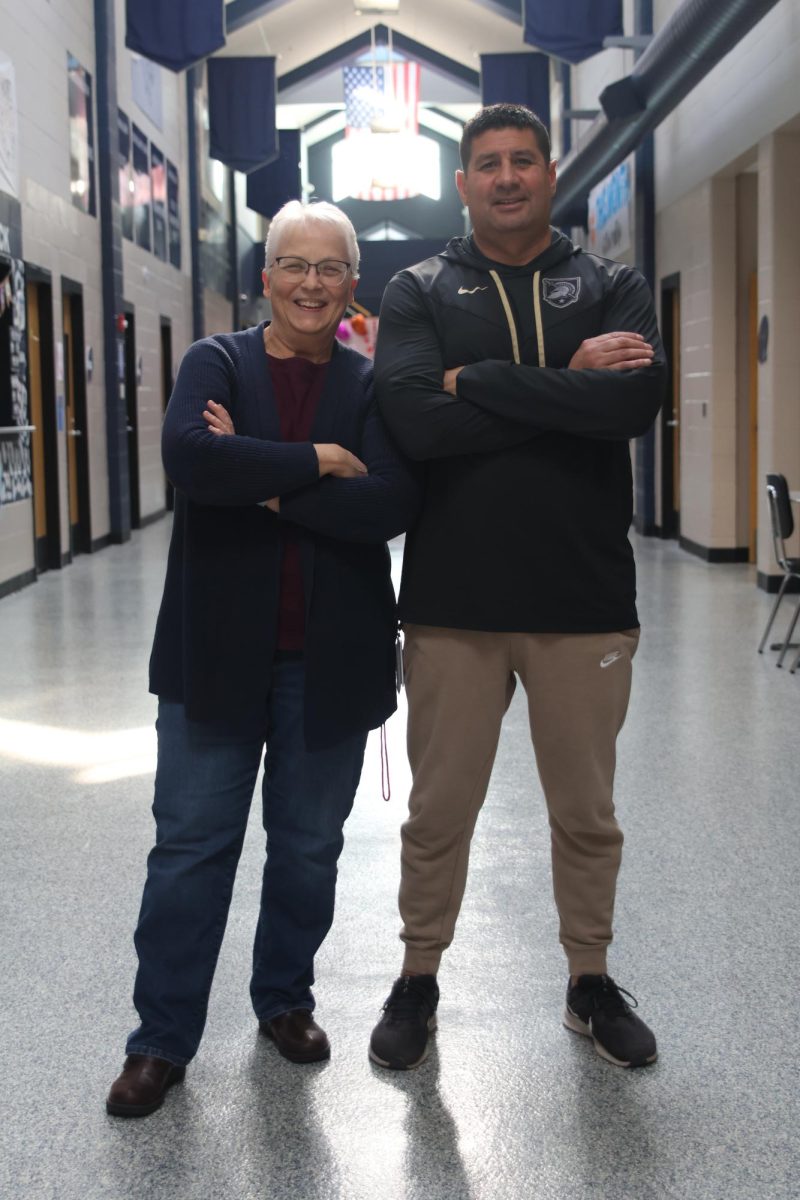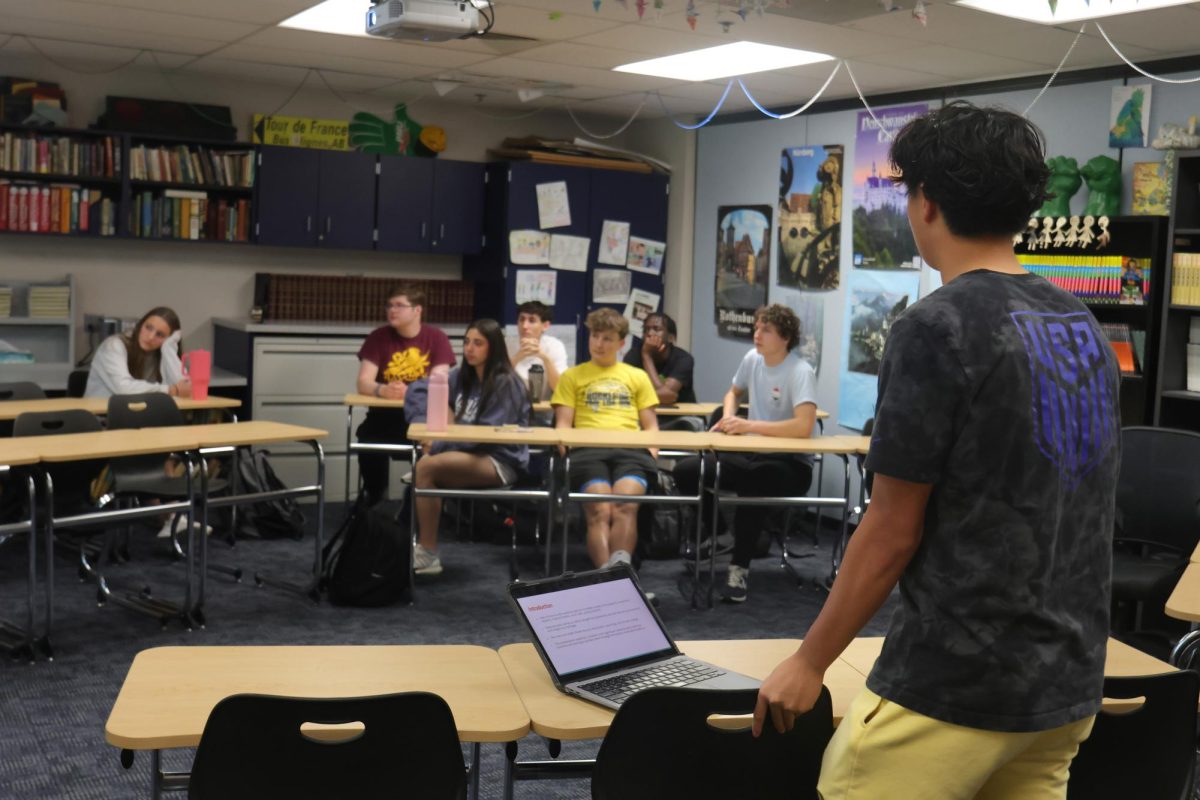A Missouri state law that would have limited teachers’ use of social media was blocked due to questions about its threats to First Amendment rights.
Cole County Circuit Judge Jon Beetem granted an injunction requested by the Missouri State Teachers Association against the Amy Hestir Student Protection Act on Friday, Aug. 26. The law, meant to protect students from sexual predators in schools, would ban private electronic communication between students and teachers, cause for concern over constitutional rights among teachers such as Harrisonville High School teacher Brad Lewis.
“Initially…it was really kind of a shock…like how dare someone tell me who I can be friends on Facebook,” Lewis said via phone. “Once I actually read the bill…my feelings have changed…I think the message behind the bill and the point behind it in terms of protecting children from sexual predators is a very sound and good idea but this one part of the act is…unconstitutional and a violation of my rights.”
The De Soto School District does not have a specific written policy on social networking , but district staff are directed to follow the district’s policy for employee-student relations. The policy states that “staff members shall maintain professional relationships and communications with students.” However, according to Alvie Cater, director of administrative services and community relations, employees are discouraged from friending current students on Facebook.
Communication arts teacher Kristen Crosbie, who is friends with many former students on Facebook, questions the bill.
“I don’t think it’s lawful or rational for former students and teachers not to be Facebook friends with each other,” Crosbie said. “If a kid is graduated, they can be friends with whoever they want to be friends with.”
Junior Stephanie Perkins has her own take on the issue.
“I don’t think I want to be friends with my teacher, so no,” Perkins said. “I think it would be awkward.”
However, Perkins said she doesn’t think there should be a law prohibiting teachers and students from being Facebook friends.
The law, Senate Bill 54, signed by Missouri Gov. Jay Nixon on Wednesday, July 27, required every school district to set a policy concerning employee-student communication, including social networking sites, by Jan. 1 of next year. Lawsuits were filed against the bill by the Missouri State Teachers claiming the bill violated teachers’ First Amendment rights. Another concern was the vague language of the bill, which meant teachers couldn’t be Facebook friends with their own children under the bill. However, after the injunction, Nixon asked for lawmakers to repeal the law’s restrictions on teacher-student communications.
The bill was sponsored by Sen. Jane Cunningham, who says it was inspired by a five-year national study conducted by the Associated Press that determined Missouri to be the 11th worst state in terms of teacher licenses being revoked due to sexual misconduct.
“The key to the entire bill was to make sure that someone who was abusing children wasn’t moving from district to district,” Cunningham said over the phone. “That’s…the most important part of the bill.”
The bill, according to Cunningham, was presented to the MSTA, as well as other state teacher organizations.
“Every teacher organization in the state of Missouri…helped craft this language, endorsed it in public hearings, testifying in favor of it and promoted it to the point that out of 197 legislators in both the House and Senate, we got not one dissenting vote,” Cunningham said. “I was surprised, yes, everyone was surprised [by the injunction].”
The bill includes other requirements that are not as controversial, however. The bill states that when teachers are found guilty of sexual misconduct, their license is permanently revoked, which Lewis agree with.
“I find it ridiculous that that hasn’t already been a law before, because to me, when you are found guilty of that kind of behavior, you should absolutely have your teacher license revoked and never given back,” Lewis said. “The fact that that was not a law before just absolutely baffles me.”
Lewis said that he felt only the part of the bill prohibiting student-teacher communication through social networking should be removed or rewritten.
“I think social networking needs to play a huge role in school,” Lewis said. “The biggest reason, I believe, to have social media in schools is because if we are trying to teach our students to be responsible citizens…when they graduate beyond high school, I think we have a duty to teach them how to use social media responsibly.”
Missouri legislators are now reviewing a revised version of the bill. The revisions include an extended deadline, March 1, for school districts to put a policy in place, and drop the ban on exclusive communications between teachers and students, relying on the districts to handle that part in their policies. The revised bill passed the Missouri State Senate on Wednesday, Sept. 7; senators voted unanimously to send the bill to the House.
“Most school districts in the state of Missouri had a much more stringent policy a year before we ever passed this so this has been the practice in Missouri for probably about a year in many of our schools,” Cunningham said. “It’s a protection for teachers as well as students.”













